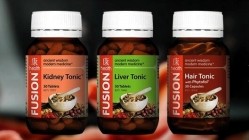China direct
Blackmores to take TCMs into China through Global Therapeutics deal

The deal, worth A$23m (US$17m), will initially focus on selling Global Therapeutics’ formulations domestically before expanding to the A$170bn global market, which Blackmores believes offers “considerable opportunity”.
Following a significant export drive by Blackmores, half of its overall sales now go to Asian customers even though it currently lacks Chinese herbal medicines in its portfolio.
Chief executive Christine Holgate says that the acquisition, scheduled to complete on May 10, will give the company a “foothold” as it gains experience in natural medicine—a segment in which Blackmores has traditionally lagged.
“Global Therapeutics will also provide us a new product portfolio to sell through our existing distribution networks in Asia while also deepening our understanding of Chinese herbal medicine,” she said.
“It will bring us closer to our Chinese consumers in Australia which will underpin our growth success internationally, and it will give us further scale to boost our operational effectiveness.”
Holgate added that there are more than 4,700 registered traditional Chinese medicine practitioners in Australia.
Established in 1999 and now with an estimated 80% home market share, Global Therapeutics was founded by naturopath and medical herbalist Paul Keogh, and Geoff Teasel, a natural health veteran. Its Fusion range has a leading position in health food stores, while Oriental Botanicals is the top Chinese herbal brand in pharmacies.
Under new ownership, both brands will continue and there are no plans to put the Blackmores name on packaging, Holgate said.
In the last 12 months Global Therapeutics made A$3m in earnings before income tax, depreciation and amortisation on the back of A$20m in sales.
The purchase means that the Blackmores Group will have leading brands in pharmacy, health food stores and the practitioner market, Holgate said.
“The acquisition furthers our strategy of product leadership and channel diversity within the category we operate.”
Blackmores, which announces its financial results quarterly, recently revealed that it had more than doubled profits in the three months to March 31 to A$27.3m.
This growth is largely due to Asian business, where Australia’s reputation for producing clean and safe health products has buoyed the market for imports.
More stories from China…
KFC trumps robot store with finger lickin’ nail polish
KFC has been on an innovation offensive in greater China over the last couple of weeks. After news emerged that its concept store in Shanghai was staffed by voice-activated robots, the company’s Hong Kong operation has now announced the launch of finger lickin’ chicken-flavoured nail polish.
In Shanghai, customers to the “Original+” outlet are greeted by a robot named Dumi. After ordering, Dumi can handle changes but struggles with varying dialects and strong accents.
Payment is completed by smartphone through mobile payment services like Baidu Wallet, with which KFC collaborated to create the gadget.
Meanwhile, in Hong Kong, KFC has taken its slogan to the extreme by launching edible nail polish which tastes like KFC signature chicken.
The fashion accessory is available in “Original recipe”, a nude shade, and “Hot & spicy”, which is the colour of habanero peppers. Both are sourced from natural ingredients, and the bottles must be kept refrigerated and their contents consumed within five days.
The polish is the brainchild of Ogilvy & Mather advertising agency, which teamed up with the spice company that provides KFC’s mix of 11 herbs and spices. Consumers are also asked to visit Facebook to vote on the colour/flavour that should go into mass production.
Chinese scallop prices soar after EU lifts import ban
News that the European Union has ended a 19-year ban on imported Chinese scallops buoyed prices by 23% in April.
Chinese imports were originally banned in July 1997 after vibrio parahaemolyticus—a bacterium which causes gastrointestinal infections—was discovered in frozen scallop meat.
However, the Zhangzidao Group of Dalian is currently the only company to have met stringent EU guidelines and can now import to the EU.
China is the world’s largest producer and exporter of scallops via aquaculture, which accounts for 18% of world scallop exports, according to Mintec, a commodities analyst.
The lifting of the ban has resulted in an increase in exports to the EU, thereby limiting supply and leading to an increase in the price of Chinese scallops.










